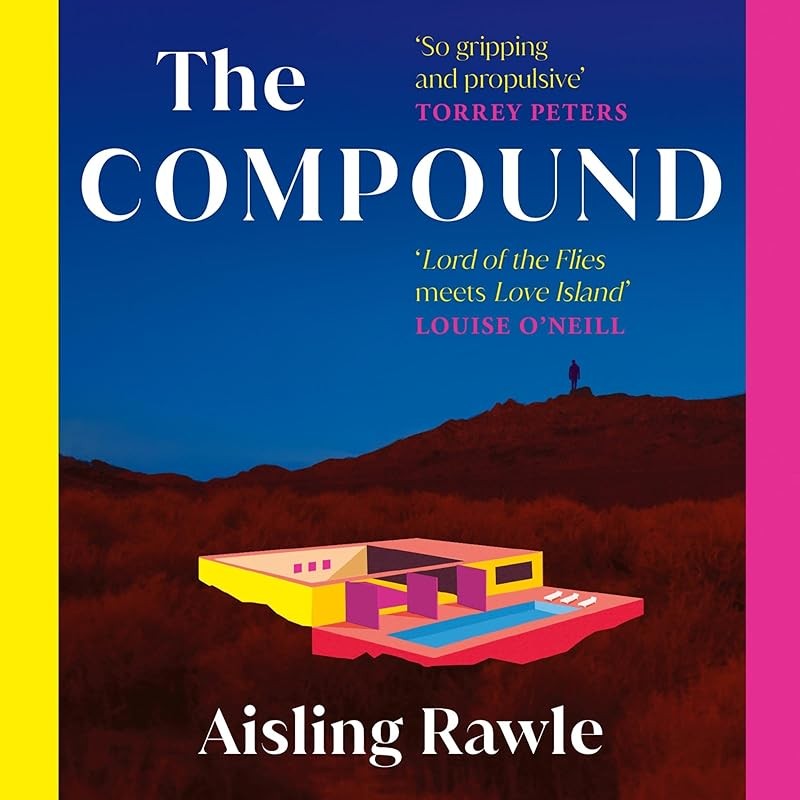BOOK REVIEW –
The Compound, debuting in late June 2025, thrusts readers into a dystopian, reality TV–style experiment involving 10 women who awaken in a desert compound, cameras following their every move.
Their prize? Survival plus material luxury if they outlast the others when 10 men eventually join the game.
As a global crisis rages outside, the contestants navigate escalating challenges, shifting alliances, and moral dilemmas in pursuit of comfort and fame.
Rawle cleverly merges elements of Love Island and Lord of the Flies, creating an eerie mirror of our voyeuristic age.
The compound is set up with personal and communal tasks and enforced pairings; the ever-increasing stakes parody our obsession with spectacle and survival entertainment and social media in general.
Consumerism is the illusion of choice; the compound rewards contestants with items from furnishings to high-end luxuries if they follow the producers’ prompts.
Authenticity erodes as Rawle exposes how surveillance warps both behaviour and relationships turning love into strategy, intimacy into content, and identity into ratings-bait.
The main character Lily starts as a self-aware but underwhelmed reality-TV contestant, bored, economically strained, hoping for a glamorous break.
As the layers peel back, she becomes a survivor, wrestling with her own passivity, moral compromises, and isolation; there is a theme reminiscent of Animal Farm – Orwell would be proud.
Possible drawbacks of this novel are that some secondary characters remain thin, feeling like game pieces rather than people.
Rawle’s most impressive achievement lies in her world-building through absence.
Unlike typical dystopias, The Compound reveals little about the broader societal collapse that led to the experiment.
There are only hints of environmental or geopolitical disaster, mirroring how most participants wilfully ignore the world outside in favour of curated comfort and simulated connection.
This lack of context amplifies the claustrophobia and forces readers to focus inward – on human behaviour, power dynamics, and moral erosion under surveillance.
The compound itself is both stage and prison, its physical construction reflecting a capitalist microcosm where contestants earn luxuries not through merit or need, but through compliance with arbitrary rules.
This evokes modern systems where worth is increasingly defined by visibility, performance and consumer potential.
Stylistically, Rawle employs a sharp, lean prose that mimics reality TV’s quick cuts and confessional structure.
What begins as a seemingly fun, fast-paced satire deepens into something far darker – a slow-burn psychological drama about performativity, commodification and isolation.
In summary, The Compound is a haunting meditation on the cost of curated identity in a hyper-mediated world.
Aisling Rawle has crafted a timely, unsettling and emotionally intelligent novel that forces us to question the systems we inhabit — and the personas we perform within them.
A must-read for fans of Black Mirror, The Circle and The Hunger Games, but with a sharper, more existential bite.
Julie Chessman




